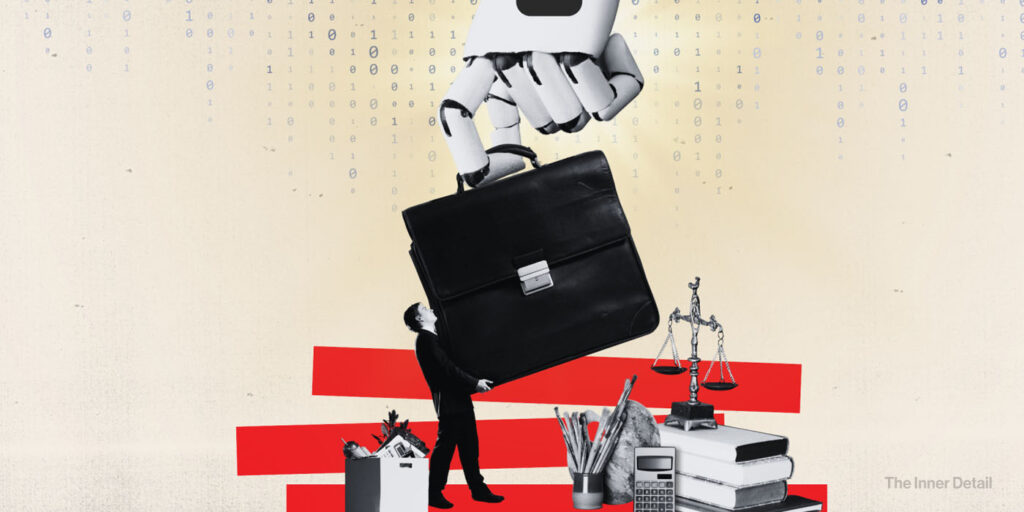The rapid advancement of artificial intelligence is sparking both excitement and anxiety, particularly when it comes to its impact on the job market. While AI specialists are generally more optimistic about the future, they also foresee significant disruption for certain occupations in the coming decades.
A recent Pew Research Center report sheds light on these predictions, revealing which jobs AI experts believe are most at risk of disappearing. This article delves into these findings, comparing expert opinions with those of the general public and highlighting the key areas of concern.
Jobs Facing the Highest Risk
AI experts, who work in or research the field, have identified several professions that they believe are most likely to experience workforce reductions due to the progress of automation technologies. Out of several jobs existing out there, AI experts narrowed it down to top-five jobs which are at brink of replacement:
- Cashiers (73% of experts agree)
- Truck drivers (62%)
- Journalists (60%)
- Factory workers (60%)
- Software engineers (50%)
Topping the list is the role of cashier, with a significant 73% of experts predicting a decline in these positions over the next 20 years. Following closely are truck drivers, where 62% of experts anticipate disruption as driverless vehicle technology matures. Other occupations that a majority of AI experts believe will see significant workforce reductions include journalists (60%), factory workers (60%), and software engineers (50%). These predictions underscore the potential for AI to automate tasks across various sectors, from customer service and transportation to content creation and manufacturing.
Read more: Which Jobs are at risk to Vanish in the Next 20 Years, as per AI Experts?Experts vs Public
Interestingly, while AI experts foresee considerable job displacement in certain areas, their overall outlook on the impact of AI on jobs and the economy is significantly more positive than that of the general public. For instance, 56% of AI experts believe artificial intelligence will positively impact the U.S. in the next 20 years, compared to just 17% of the general public. This perception gap highlights a crucial divide between those developing AI technologies and the workers who may be directly affected by them.
You may also like to Read this: 25% of Jobs will change in the Next 5 years – These are most affected
The differing viewpoints are particularly evident when considering the future of truck driving jobs. While 62% of experts predict fewer jobs for truck drivers, only 33% of the general public shares this view. Experts believe that advancements in driverless vehicle technology make this sector ripe for automation. Conversely, the public is more likely than experts to anticipate AI-related job loss for professions like musicians, teachers, and medical doctors.
Broader Perspectives and Concerns
Despite their differences, AI experts and the general public find common ground on several aspects of AI development. Both groups agree that medical care is the area where AI could offer the most significant benefits. Conversely, neither group is optimistic about AI’s potential to positively impact accurate news reporting or election coverage. Furthermore, a shared skepticism exists regarding government regulation of AI and whether U.S. companies will develop and use AI responsibly. A majority in both groups worry that government regulation will be insufficient and lack confidence in industry’s self-regulation.
Top 20 Jobs in Risk due to AI like ChatGPT and Gemini
The acknowledgment by AI experts that specific job categories are at high risk, despite their overall optimism, underscores the necessity for proactive measures. As Jeff Gottfried, Pew’s associate director of research, points out, these findings reinforce long-standing public concerns about job displacement. Understanding these differing perspectives is crucial for effective communication and for developing targeted workforce development and transition plans to prepare workers for the evolving landscape of employment.
(For more such interesting informational, technology and innovation stuffs, keep reading The Inner Detail).
Kindly add ‘The Inner Detail’ to your Google News Feed by following us!

